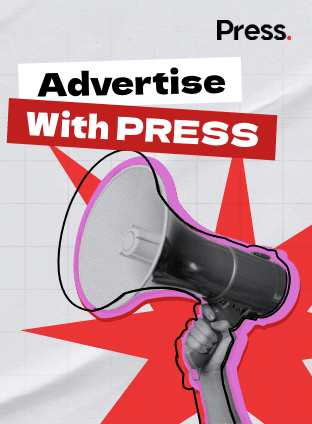Key Takeaways
- Auntie is the more standard spelling in British and American English.
- Aunty is widely used in Asian English (Malaysia, Singapore, India).
- Both are correct and mean the same thing: your parent’s sister, or an older woman addressed respectfully.
- In formal writing, use Aunt (without –ie or –y).
- Memory tip: Auntie = Dictionary, Aunty = WhatsApp chat.
Table of Contents
ToggleIf you’ve ever typed “aunty” in a WhatsApp message and then hesitated in an email wondering if it should be “auntie,” it’s okay! Both are correct, the only difference lies in tone, audience, and of course context.
Today, our writers will break down when to use aunty vs auntie, with examples, cultural context, and a few quick tips so you never second-guess yourself again.
What Does “Auntie” Mean?
“Auntie” is the recognised dictionary spelling. It appears in both British and American English as the affectionate form of “aunt.”
Examples:
- “We’re visiting Auntie Mary this weekend.”
- “The kids hugged their Auntie at the airport.”
- “I baked cookies for Auntie Sarah.”
Rule: If you’re writing something formal or global, like a card, school essay, or a message, Auntie is safer.
Read more: Women or Woman? How to Use Each Correctly in English
What Does “Aunty” Mean?
“Aunty” is a regional spelling, especially common in Asia. It’s warm, casual, and used for relatives and also as a respectful title for older women, even if they aren’t family.
Examples:
- “The shop Aunty gave me extra sambal.”
- “This is Aunty Mei Ling, she’s like family.”
- “Call Aunty and tell her we’re running late.”
Rule: If you’re writing in casual or regional contexts, Aunty feels authentic, but Auntie is also suitable!
Aunty vs Auntie: Which One Fits Best?
Word | Where It’s Common | Tone | Example |
Aunt | Global (formal) | Formal | “My Aunt is a lawyer.” |
Auntie | Global (dictionary) | Polished, affectionate | “We love Auntie Susan’s apple pie.” |
Aunty | Asia (Malaysia, SG, India) | Casual, cultural | “The friendly aunty at the stall waved.” |
Pronunciation
Both are pronounced the same: /ˈɑːn.ti/ (AHN-tee).
The only difference is in spelling, not sound.
Common Mistakes to Avoid
❌ “My aunty will represent me in court.”
✔️ “My aunt will represent me in court.”
❌ “Dear Aunty, regarding the tenancy agreement…”
✔️ “Dear Aunt / Auntie, regarding the tenancy agreement…”
Rule of thumb: Never use aunty/auntie in formal letters or contracts. Stick to “Aunt.”
Memory Tips
- Auntie = Dictionary (safe, international).
- Aunty = Local chat (warm, regional).
- If you’d print it on a wedding invite → Auntie.
- If you’d text it in the family WhatsApp → Aunty.
Example Use Cases
Emails/Reports:
- ✔️ “Please contact Auntie Margaret about the arrangements.”
- ❌ “Please contact Aunty Margaret about the arrangements.” (too casual)
Family WhatsApp Chats:
- ✔️ “Aunty Mei is bringing curry tonight.”
- ✔️ “Auntie Mei is bringing curry tonight.” (both fine, but “aunty” feels warmer in chat)
Formal Documents:
- ✔️ “My Aunt is listed as the next of kin.”
- ❌ “My Aunty is listed as the next of kin.”
Which Should You Use in Branding or Marketing?
For businesses, tone matters just as much as correctness.
- Use Auntie → if your writing is global-facing (press releases, international campaigns, brand content).
- Use Aunty → if your brand voice is casual, local, or community-based.
- Avoid both → in legal, HR, or financial communication, stick with Aunt.
Example: “Auntie Anne’s Pretzels” works globally. But if a Malaysian food brand used “Aunty’s Kitchen,” it would feel authentic and local.
Here’s a quick decision guide:
- Writing a contract? → Aunt
- Writing a greeting card? → Auntie
- Texting your cousin’s mother? → Aunty
- Marketing to Western readers? → Auntie
- Marketing to Asian readers? → Aunty
If in doubt: Auntie for global, Aunty for local, Aunt for formal.
Read more: License or Licence? How to Use Each Correctly in English
Quick Practice Routine
Spot & Swap (2 mins daily)
❌ “The immigration officer processed my aunty passport.”
✔️ “The officer processed my aunt’s passport.” (formal)
✔️ “The aunty at the stall gave me extra nasi lemak.” (casual/local)- Write 3 Sentences (3 mins)
- My Auntie is visiting from London.
- The neighbour aunty makes amazing laksa.
- I’ll see my Aunt this Sunday.
- Quick Quiz (1 min)
Which is correct?
a) “Dear (Aunty/Auntie), happy birthday!”
b) “Please consult your (Aunty/Aunt) regarding the will.”
c) “I ran into the (aunty/auntie) from the shop downstairs.”
Answers: a) Aunty, b) Aunt, c) Aunty.
Conclusion on Aunty vs Auntie
Both aunty and auntie are correct, it’s about context, not correctness.
- Auntie is dictionary-standard and safer in global or formal writing.
- Aunty is casual, regional, and warm in everyday use.
- Aunt is the formal choice for legal, professional, or academic documents.
In short: Aunt = formal, Auntie = polished, Aunty = casual.
As the leading PR agency in Malaysia, we hope you found this guide helpful (and maybe a little entertaining).
At PRESS, we love exploring the small details of language that shape how people read, react, and remember your message.
Beyond grammar, we also support brands with press releases, corporate communications, and branding strategies that make every word count.
So if you’re interested in getting your message heard just like how this blog reached out to you, why not give us a call?
Frequently Asked Questions About Aunty vs Auntie
Is It Aunty Or Auntie In British English?
British English prefers auntie as the informal form.
Is Aunty Wrong?
No, it’s not wrong, it’s just more common in Asia.
Which Spelling Should I use in Formal Writing?
Use Aunt. Both “aunty” and “auntie” are informal.
Can I Call A Neighbour Aunty?
Yes, in Asian English it’s respectful but you can also just use “Mrs.” or “Ms.”
Do Americans Say Auntie Or Aunty?
Americans use auntie, not aunty.
So Which one Should I Choose?
For global/formal writing: Auntie. For casual/local: Aunty.


